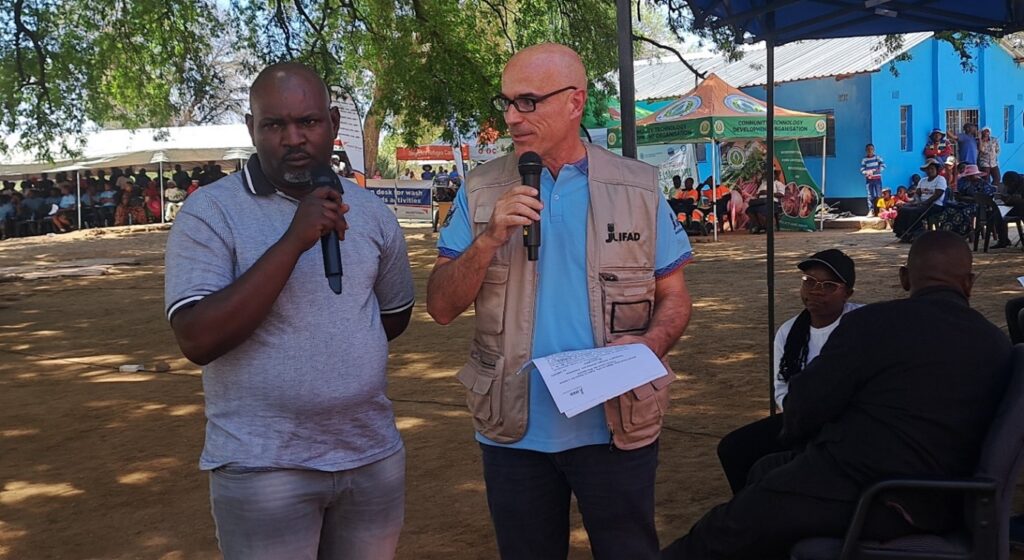IFAD Country Director for Zimbabwe and Eswatini, Mr Francesco Rispoli says IFAD is uniquely positioned to bridge the gap between humanitarian aid and sustainable, long-term development in rural areas. Speaking at the World Food Day celebrations held in Tongogara Resettlement, Mr Rispoli said the institution was purpose-built to respond to the root causes of instability, conflict and crisis, by strengthening the productivity, livelihoods and climate resilience of small-scale food producers and rural people with a strong focus on women, youth, Indigenous Peoples, and persons with disabilities.
IFAD’s agricultural initiatives significantly contributed to achieving the Sustainable Development Goals (SDGs), particularly those aimed at eradicating hunger and promoting sustainable agriculture. Mr Rispoli added that, the fastest route out of hunger and poverty had proved to be through investments in agricultural and rural areas, a principle shared between IFAD and the Government of Zimbabwe. He highlighted that the Zimbabwe IFAD country strategy is underpinned by medium to long term investments, most notably, the Smallholder Irrigation Revitalization Programme (SIRP), the Smallholder Agriculture Cluster Project (SACP) and the Horticulture Enterprise Enhancement Project (HEEP). These three investments totalled an estimated US$ 187 million and are all united by a focus on climate resilience, increased productivity and improved market linkages and access for smallholder farmers.

